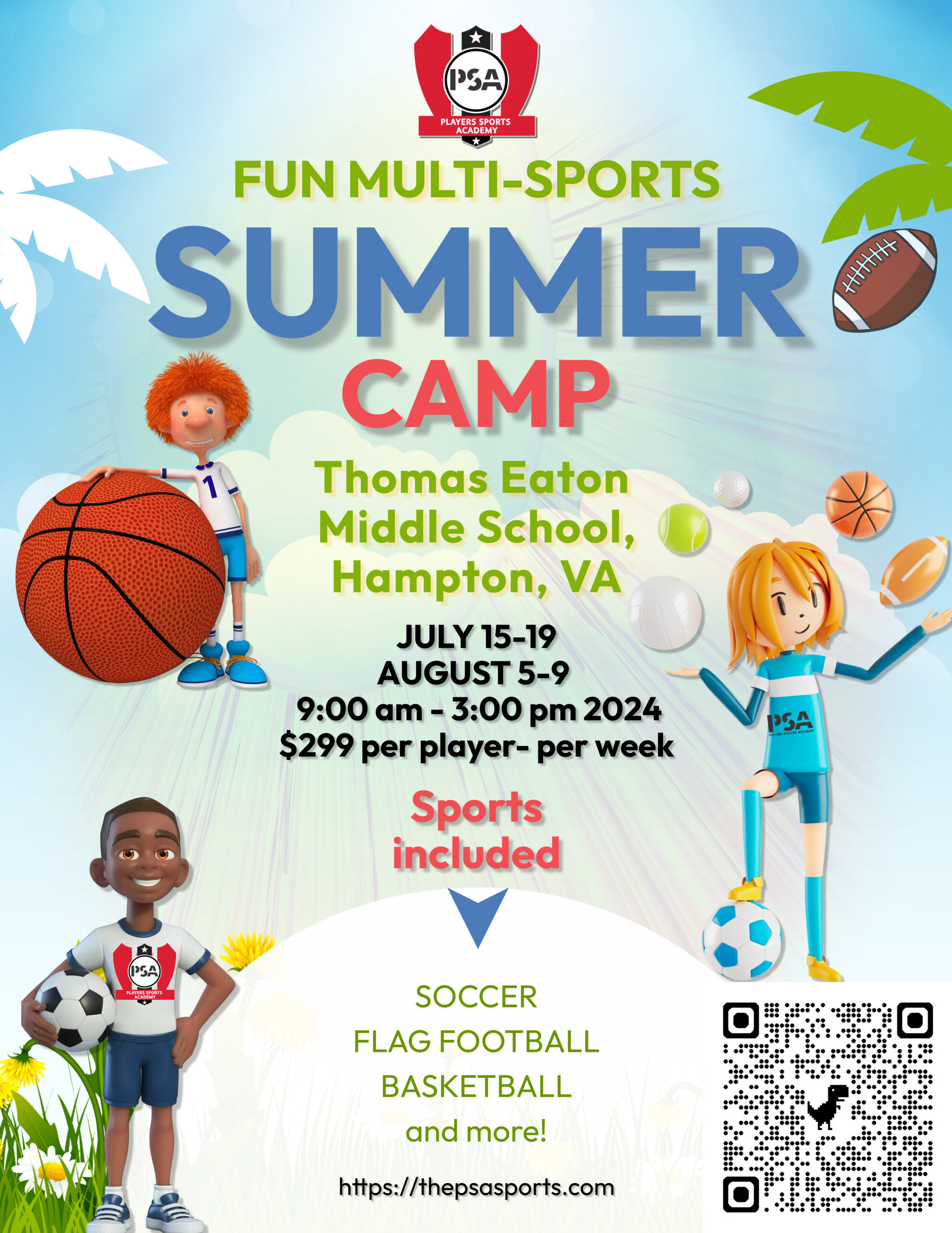Understanding Parental Rights and Sports Participation in Virginia
When parents separate or divorce in Virginia, disagreements about children's extracurricular activities—including sports participation—can become contentious issues. One question that frequently arises is whether one parent can unilaterally prevent children from playing sports against the other parent's wishes.
This comprehensive guide explores the legal and family considerations surrounding this question in Virginia, providing information for parents navigating these challenging situations while keeping their children's best interests at heart.
Important Note
This article provides general information about legal considerations but does not constitute legal advice. For guidance specific to your situation, please consult with a family law attorney licensed in Virginia.
Legal Framework: Custody and Decision-Making Authority in Virginia
In Virginia, the legal framework for resolving disputes about children's activities centers around custody arrangements and parental decision-making authority. Two key concepts apply:
Legal Custody vs. Physical Custody
Legal custody refers to the right to make major decisions about a child's upbringing, including education, healthcare, religious training, and significant extracurricular activities like organized sports.
Physical custody determines where the child lives and the day-to-day care responsibilities.
Joint Legal Custody Considerations
When parents share joint legal custody—which is common in Virginia—both parents typically have equal decision-making rights regarding major aspects of their children's lives, including participation in organized sports and other extracurricular activities. This means that, ideally, both parents should agree on whether a child participates in sports programs.
When one parent has sole legal custody, that parent generally has the authority to make decisions about sports participation without the other parent's consent, although communication is still encouraged.
Common Scenarios and Legal Approaches
Scenario 1: Joint Legal Custody with Disagreement
When parents with joint legal custody disagree about sports participation, several approaches may be taken:
- Mediation: Parents may work with a neutral third party to reach a mutually acceptable solution.
- Parenting Coordinator: In high-conflict cases, the court may appoint a parenting coordinator to help resolve disputes about extracurricular activities.
- Court Intervention: If agreement cannot be reached, either parent can petition the court to make a determination based on the child's best interests.
Scenario 2: Concerns About Safety or Health
One parent may object to a child's participation in certain sports due to legitimate concerns about safety, health risks, or medical conditions. Virginia courts generally take these concerns seriously, especially when supported by medical evidence or expert opinions.
| Common Concern | Court's Likely Consideration |
|---|---|
| Risk of concussion in contact sports | Medical evidence about specific risks to the child |
| Pre-existing medical condition | Doctor's recommendations and potential accommodations |
| Time commitment interfering with academics | Child's academic performance and ability to balance activities |
| Financial burden of participation | Family resources and potential cost-sharing arrangements |
Scenario 3: Disagreement During Parenting Time
Sometimes, the dispute involves one parent wanting to take the child to sports activities during the other parent's scheduled parenting time. Virginia courts generally respect each parent's right to determine activities during their parenting time, but may intervene if a consistent schedule for an important activity is being disrupted.
Best Interest of the Child Standard
When Virginia courts must intervene in disputes about children's sports participation, they apply the "best interest of the child" standard. Factors the court may consider include:
- The child's physical and mental health needs
- The child's expressed interests and preferences (especially for older children)
- The benefits of participation in team sports for social development
- The reasonableness of each parent's position
- The history of the child's participation in the sport
- The impact on the child's overall well-being and development
"In determining what extracurricular activities a child should participate in, Virginia courts look at the totality of circumstances and how the activity contributes to the child's physical, emotional, and social development."
Communication Strategies for Parents
Before seeking legal intervention, parents can try these communication strategies to resolve disagreements about sports participation:
1. Focus on the Child's Interests
Center discussions on what the child wants and what would benefit their development, rather than parental preferences or disagreements.
2. Document Concerns Specifically
If you have concerns about a sport, document them specifically—for example, not just "football is dangerous" but "our child has had two concussions and their doctor recommends avoiding contact sports."
3. Consider Compromise Solutions
Look for middle-ground options, such as:
- Trying a sport for one season before making a long-term commitment
- Choosing a less competitive league with a reduced time commitment
- Selecting a different sport that addresses both parents' concerns
- Getting an evaluation from a neutral party such as the child's physician
4. Use Professional Resources
Consider working with a family therapist, mediator, or co-parenting coach who specializes in helping separated parents make joint decisions for their children.
Sports Facilities' Role in Virginia
Sports facilities and program administrators in Virginia often find themselves navigating these complex family situations. Most reputable facilities in Virginia have policies addressing parental consent requirements:
Common Facility Policies
- Registration forms that require signatures from all legal guardians
- Clear policies on who can authorize medical treatment in emergencies
- Procedures for handling situations when parents provide conflicting instructions
- Documentation requirements for custody orders affecting participation
Virginia sports facilities like those listed in our summer camps directory and facility rentals guide typically have staff trained to handle sensitive family situations while prioritizing children's safety and well-being.
Resources for Parents in Virginia
Legal Resources
- Virginia State Bar Association Referral Service
- Legal Aid Societies throughout Virginia
- Virginia Judicial System Family Court Services
- Virginia Family Law Section of the State Bar
Mediation and Co-Parenting Resources
- Virginia Mediation Network
- Community Mediation Centers
- Co-parenting classes (often available through local family service agencies)
- Online co-parenting communication tools
Find Sports Programs That Support Co-Parenting
Looking for sports facilities in Virginia that are experienced in working with co-parenting families? Explore our directory of multi-sport complexes and summer camps that offer flexible scheduling and communication options for separated parents.
Explore Family-Friendly Sports FacilitiesConclusion: Balancing Rights and Responsibilities
While Virginia law provides a framework for resolving disputes about children's sports participation, the most successful outcomes typically result from parents working together to put their children's interests first. Court intervention should generally be a last resort after other methods of resolution have been attempted.
By understanding both legal rights and co-parenting best practices, parents can navigate disagreements about sports participation while minimizing conflict and supporting their children's healthy development through athletic activities.
Remember that this article provides general information rather than specific legal advice. If you're facing a dispute about your child's sports participation in Virginia, consider consulting with a family law attorney who can provide guidance tailored to your specific situation.
If your custody order doesn't specifically address extracurricular activities like sports, decisions typically fall under general legal custody provisions. When parents share joint legal custody without specific provisions for activities, both generally have equal say in these decisions. You may need to negotiate or seek mediation if disagreements arise.
Yes, private sports organizations and facilities in Virginia can establish their own policies regarding parental consent. Many require consent from all legal guardians or documentation of sole decision-making authority. This is especially common for activities with potential injury risks or significant financial commitments.
Virginia courts typically give increasing weight to a child's preferences as they grow older, though this is just one factor in the "best interest" analysis. For teenagers, a strong and well-reasoned preference to participate (or not participate) in a sport may be given substantial consideration, especially if supported by evidence of the activity's impact on their well-being.
For more information about sports facilities across Virginia where families can enjoy activities together, visit our home page or explore our guides to multi-sport complexes throughout the state.

